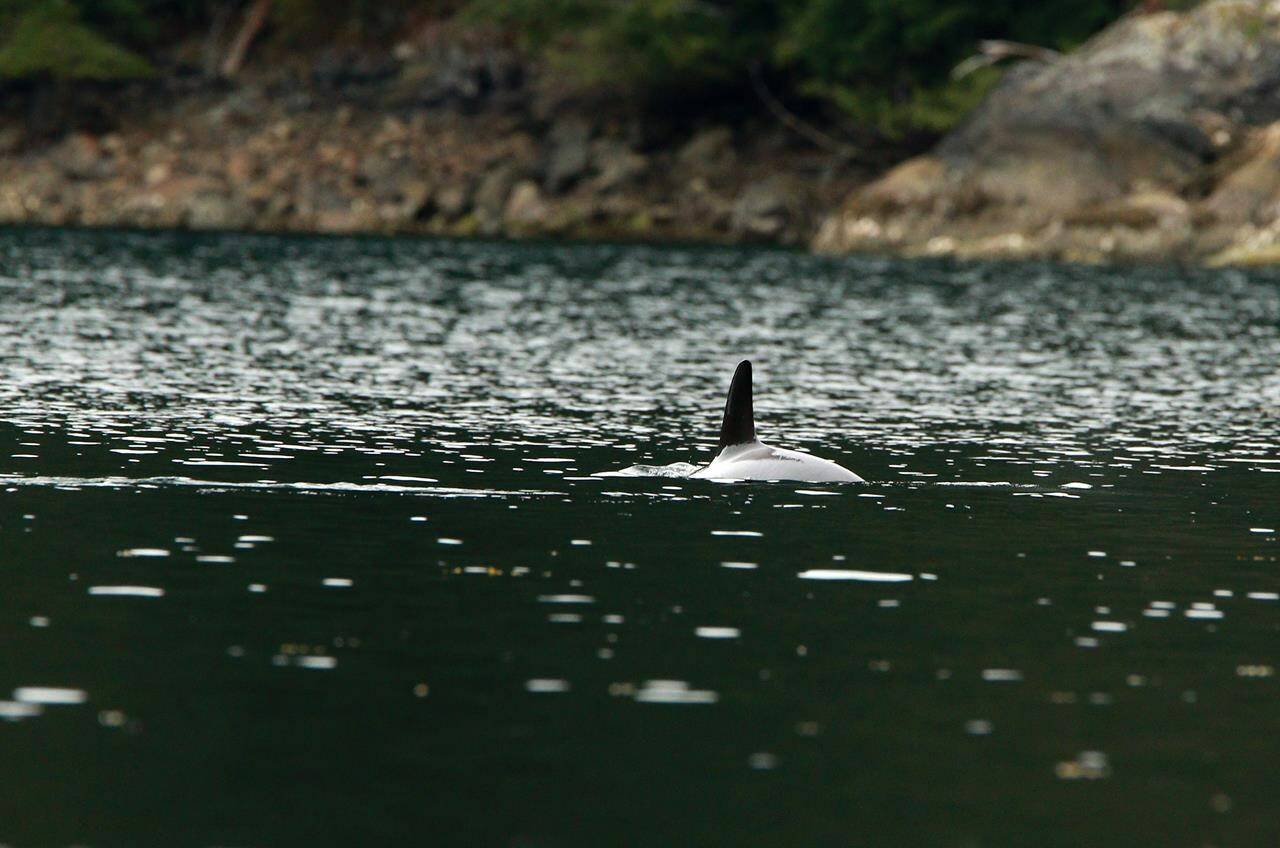A rescue effort that involves lifting a killer whale calf out of a remote tidal lagoon off northern Vancouver Island could happen within the next two weeks.
Federal Fisheries Department officials, the area’s Ehattesaht First Nation and marine mammal rescue experts say they’re convinced the only way to save the two-year-old orca calf is to risk hoisting it from the tidal lagoon near Zeballos, B.C.
Paul Cottrell, a marine mammal co-ordinator with the department, says rescue crews will attempt to place the young whale in a sling and lift it to the open ocean.
He says the plan then involves placing the orca calf in a large net pen in the ocean where its health can be examined and the chances of it meeting its family pod are greatest.
Ehattesaht First Nation Chief Simon John says other attempts to entice the young whale to leave the lagoon have not been successful and the nation wants to take every opportunity available to save its life.
The orca calf has been stranded near Little Espinosa Inlet since March 23, when its pregnant mother became trapped on a rocky beach at high tide and died.
The plan was agreed on Wednesday during a meeting between members of the Ehattesaht First Nation council, Fisheries Department officials and marine technical experts.
John said his people have deep cultural and spiritual connections to killer whales and the nation has been receiving calls of concern and support from around the world.
“Everybody’s worried about the whale up and down the coast,” he said after the meeting. “This whole process has been to reunite it with its pod.”
Cottrell said the rescue could occur within days, but more likely within the next two weeks.
“We look at this option as the most viable option to helping this whale,” said Cottrell during the meeting at the First Nation office. “Everybody is rooting for us. If we don’t attempt it, the calf’s life is a worry.”
Cottrell said time is of the essence for the calf. They’ll be working quickly to put the plan in place, look at how they’ll capture and transport the calf and then, hopefully, reunite it with its pod as it passes.
Rescue officials have been trying to coax the two-year-old orca calf to pass through a narrow, swift-moving channel leading to the open ocean since its mother died. She was stranded when the tide went out in the lagoon. A necropsy later showed she was pregnant with a female calf.
Cottrell said they have to move to the next phase of capture and transport.
“I’ve been involved in a lot of whale rescues and other marine mammal rescues in this in terms of the complexities and variables with it being a tidal lagoon, an orphaned calf, a threatened species, I’ve never been involved in such a complex operation (that is) multivariable and really difficult,” he said.
How they’ll capture the calf is still being worked out. Officials say it will be placed in a sling and examined for its health before being put in a net pen similar to the ones being used for fish farms along B.C.’s coast.
“And it’s not, definitely not, going to be an easy road ahead. But everybody’s optimistic and really working together to make this happen,” Cottrell said.
Fisheries officials put out harbour seal meat for the calf on Tuesday, hoping it would eat, but while the meat was gone, no one saw the calf eat it.
“We are looking at partially supplementing food for the animal going forward,” Cottrell said in an interview on Tuesday.
Efforts by the Fisheries Department, the Ehattesaht First Nation and others to get the calf to open water where it might reconnect with its pod members have included using a flotilla of boats setting a series of directional lines leading out of the lagoon and playing recorded whale calls from its family.
Members of the calf’s family, which are Bigg’s killer whales, were last spotted near Ucluelet and they were heading north. Ucluelet is about 150 kilometres south of the village of Zeballos on the northern side of Vancouver Island.
Cottrell said the calf appears healthy and shows signs of looking for prey.
“Just looking generally at the animal, it’s very active. It doesn’t look emaciated at all, no peanut head,” he said.
Whale researchers use the term peanut head to describe the condition of underfed killer whales that lose their fat reserves, giving their head a peanut-shaped profile at the surface.
READ ALSO: Rescuers trying to feed orphan orca stranded in a B.C. lagoon
READ ALSO: Mother orca dies after becoming beached on northern Vancouver Island

